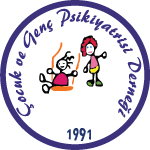ABSTRACT
Objectives
This study aims to adapt the Child Post-Traumatic Cognitions Inventory for assessing post-traumatic cognitive levels of children and adolescents to Turkish culture and test its reliability and validity.
Materials and Methods
The study sample consists of a total of 596 children and adolescents (age; =14.9, standard deviation=1.6 years), including 332 girls (55.7%) and 264 boys (44.3%). Data analysis was conducted using IBM SPSS Statistics (v.26, IBM Corp., Armonk, NY, USA), Jamovi (v.2.3.21, The Jamovi Project, Sydney, Australia), and IBM AMOS (v.24, IBM Corp., Armonk, NY, USA) software packages. The following analyses were employed: descriptive statistics, explosratory factor analysis, confirmatory factor analysis, reliability analysis, and Pearson correlation coefficient. Construct validity was assessed through Pearson correlation coefficient analysis using data obtained from the Child Post-Traumatic Stress Symptoms Severity Scale and the Depression, Anxiety, and Stress Scale.
Results
The scale was found to consist of two sub-dimensions and 23 items. The McDonald’s omega and Cronbach alpha coefficients for the sub-dimensions and the total score of the scale range from 0.82 to 0.91. The item loadings of the scale vary between 0.39 and 0.74. The construct validity of the scale was tested using the Child Post-Traumatic Stress Symptoms Severity Scale and the Depression, Anxiety, and Stress Scale, which yielded significant results.
Conclusion
This study has established that the Turkish-adapted version of the Child-Adolescent Post-Traumatic Cognitions Inventory is a valid and reliable measurement tool. It is believed that this scale will be valuable to clinicians and experts in the field, and will contribute to the existing literature.



